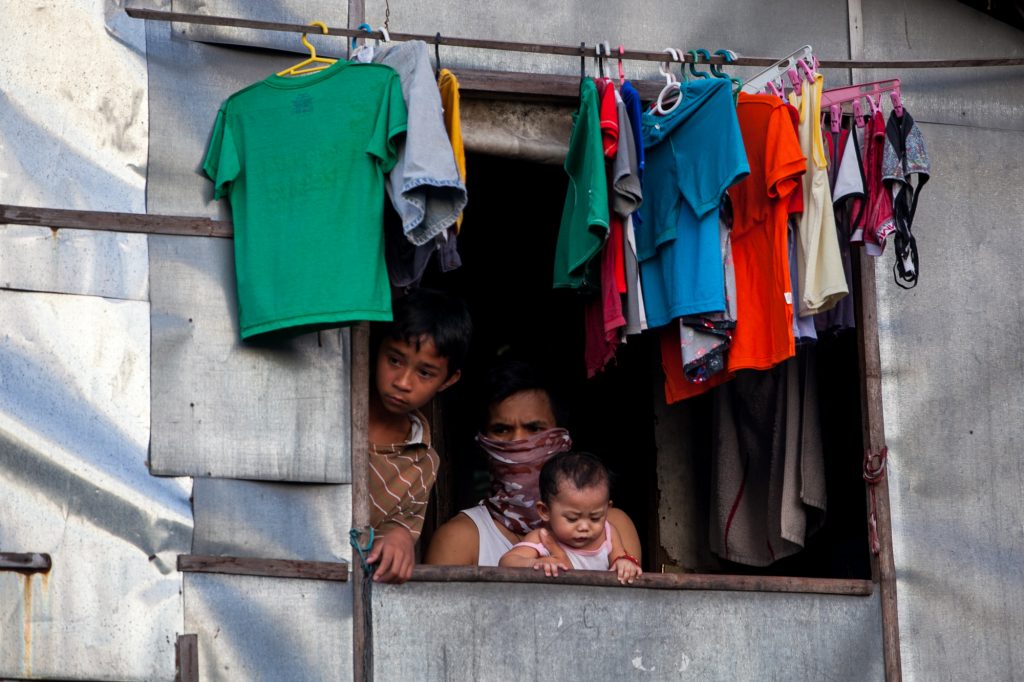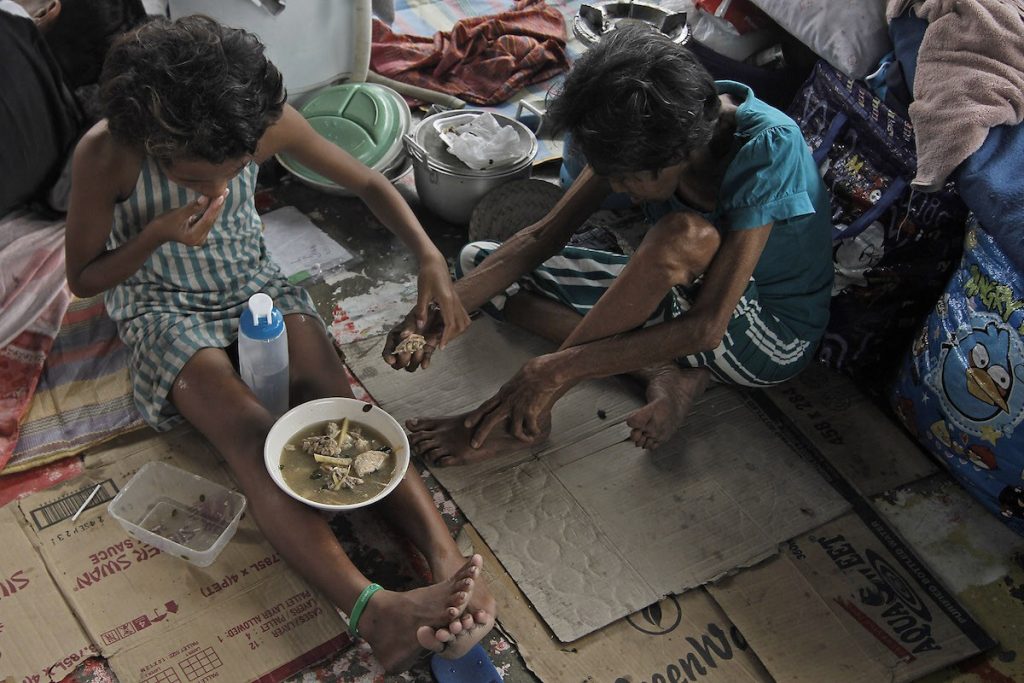
Pope Francis called on governments around the world for a new global approach to poverty, saying that “the very concept of democracy is jeopardized” when the poor are marginalized.
“If the poor are marginalized, as if they were to blame for their condition, then the very concept of democracy is jeopardized and every social policy will prove bankrupt,” said the pope in his message for the World Day of the Poor released by the Vatican on June 14.
He said the global community needs “a farsighted social model capable of countering the new forms of poverty that are now sweeping the world and will decisively affect coming decades.”
This year’s World Day of the Poor, which will be observed on November 14, carries the theme “The poor you will always have with you” from the Gospel of Mark 14:7.
In his message, Pope Francis noted the tendency to look at the poor as “an intolerable burden for an economic system focused on the interests of a few privileged groups.”
“A market that ignores ethical principles, or picks and chooses from among them, creates inhumane conditions for people already in precarious situations,” he said.
“We are now seeing the creation of new traps of poverty and exclusion, set by unscrupulous economic and financial actors lacking in a humanitarian sense and in social responsibility,” said the pontiff.
He said the presence of the poor should not make society indifferent, instead it should inspire “a mutual sharing of life that does not allow proxies.”
The pope said commitment for the poor should “not consist exclusively of activities or programs of promotion and assistance,” adding that the Holy Spirit mobilizes “not an unruly activism, but above all an attentiveness that considers the other in a certain sense as one with ourselves.”
He distinguished “acts of charity” from “mutual sharing,” describing “acts of charity” as needing a giver and a receiver while “mutual sharing” generates fraternity.
The pope said almsgiving is occasional while mutual sharing is enduring, adding that he former risks gratifying those who perform it and can prove demeaning for those who receive it.
He said “mutual sharing” strengthens solidarity and lays the necessary foundations for achieving justice.

On the global health crisis, Pope Francis stressed the need for a “suitable means of combating the virus at the global level without promoting partisan interests.”
“It is especially urgent to offer concrete responses to those who are unemployed, whose numbers include many fathers, mothers, and young people,” said the pope.
He said some countries are suffering extremely severe consequences from the pandemic with the most vulnerable lacking basic necessities.
“Last year we experienced yet another scourge that multiplied the numbers of the poor: the pandemic, which continues to affect millions of people and, even when it does not bring suffering and death, is nonetheless a portent of poverty,” said Pope Francis.
Pope Francis established the World Day of the Poor in his apostolic letter “Misericordia et misera” that was issued in 2016 at the end of the Church’s Jubilee Year of Mercy.
In his message for this year’s observance, the pope expressed hope that the World Day of the Poor would inspire a new movement of evangelization at the service of disadvantaged people.
“We cannot wait for the poor to knock on our door; we need urgently to reach them in their homes, in hospitals and nursing homes, on the streets and in the dark corners where they sometimes hide, in shelters and reception centers,” he wrote.
The World Bank estimated in October that the pandemic could push as many as 115 million additional people into extreme poverty by 2021. It said that it expected global extreme poverty — defined as living on less than US$1.90 a day — to rise in 2020 for the first time in more than 20 years.
Source: Licas Philippines
0 Comments